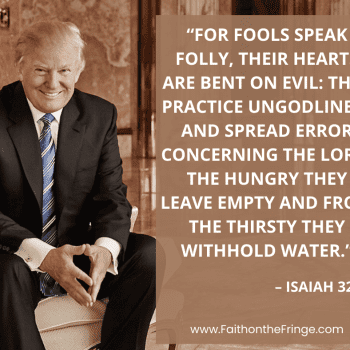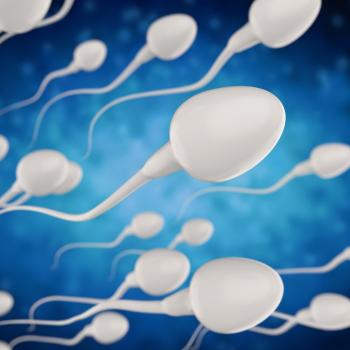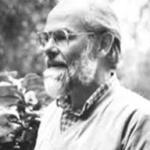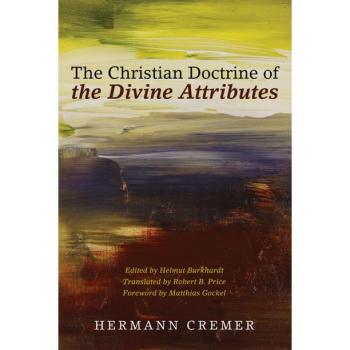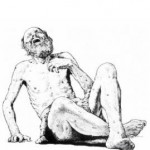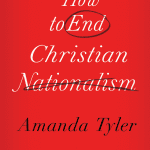Is American Becoming a Police State?
A few months ago I was having a discussion with a group of very socially conscious, highly intelligent graduate students who read widely and deeply in social and political ethics. Somehow the question whether America could ever become a police state came up. One student perceptively asked “How would we know?” What he meant was, how would we know if we were in a police state? Do most people who live in police states know they are living in a police state?
Much of the problem of knowing, of course, revolves around the ambiguity of the phrase “police state.” What does that even mean? No doubt it’s something like pornography (according to one Supreme Court justice who said he couldn’t define it but he knew it when he saw it).
The question of police overreaching power and power abuse keeps appearing in the news media—local and national. Anyone paying attention has to have seen the stories. I’ll mention a few here. Over the past several years police throughout America have begun confiscating cell phones used by bystanders to digitally record police behavior during arrests. Here, in the city where I live, there was a notorious example recently. A newspaper reporter’s cell phone was summarily confiscated by a city police officer for no other reason than she was using it to “film” police activity in a public place. She was on public property and had every right to be recording what was happening, but the policeman took it away saying “We’re not doing that.” Eventually it was returned to her, but, to the best of my knowledge, the policeman who unconstitutionally confiscated it was never disciplined. This has become a pattern throughout the U.S.
Recently the U.S. Supreme Court ruled that police have the right to strip and “body search” (including body cavities) anyone arrested for any reason—even a traffic violation—even if they have not yet been officially charged with anything. This, too, has become common practice.
Prosecutorial misconduct, especially withholding potentially exonerating evidence from defense attorneys in criminal cases, has become a serious problem. Stories of (especially) men spending years in prison for crimes they did not commit because of prosecutorial misconduct pop up in the media frequently. One rarely hears what happens to the prosecutors. In one recent case near where I live a judge who, when he was a prosecutor, withheld potentially exonerating evidence from a defendant’s attorneys so that the innocent defendant spent twenty-five years in prison, was given a sentence of ten days in jail plus community service and probation. The innocent man’s story has been on national news “magazine” programs recently. But his is not the only case. Anyone who watches “Dateline” or “48 Hours” knows of many other similar cases.
How, you may wonder, does this relate to the question of a possible “police state?” We use the word “police” in many ways; in “police state” it refers to all law enforcement officers including judges, prosecutors, prison guards, etc. It is not referring solely to “local cops” who patrol the streets and respond to emergency calls. They might almost all be completely innocent of violating citizens’ rights and yet a police state might exist insofar as innocent people are being spied on without probable cause (even by permission of “secret courts”), citizens are being subjected to search and seizure without warrants, prosecutors are manipulating evidence to convict innocent people, prison guards turn a blind eye when prisoners are being abused, government agents are invading citizens’ privacy for no other reason than to collect damaging evidence against them because they are perceived to be dissidents from government policies, government agents infiltrate citizens’ groups that are not breaking any laws to spy on them, people are being pulled over in their cars and subjected to searches for no other reason than the color of their skin, etc., etc., etc.
Here I’ll tell a few stories from my own life that may sound funny now, but at the time they constituted serious police misconduct. I know many, many people who have suffered similar mistreatment. In my case and in most cases there were no injuries or stays in jail, etc., but that does not mitigate the fact that the police over reached and abused their power.
When I was a teenager living in a small Midwestern city I played an innocent prank that hurt nobody. But I was hauled to jail for it anyway. (Now I can laugh about it, but at the time it was traumatic.) I earned my first $100 at my first part time job. I was sixteen years old. I withdrew my money from the bank in the form of a one hundred dollar bill (then a rarity for most people but especially teenagers!). A friend and I went to our favorite hamburger stand and ordered cheeseburgers, french fries and soft drinks. I paid with my one hundred dollar bill. The problem wasn’t that the restaurant didn’t have change; they had plenty. I’m not sure what their problem was, but they called the police. Within minutes five city police cars pulled up and “arrested” me and my friend. We were taken to the downtown police station and made to sit near the “holding cell.” We weren’t handcuffed or put in a cell, however. Nevertheless, I was traumatized. One reason was that I knew that the juvenile judge in town routinely had juveniles’ heads shaved (only boys, though) even before they were charged with any crime. I fully expected to have my head shaved. It was common practice. Fortunately, all that happened was that the police called my father who confirmed that the money was mine. I was released with a stern warning not to cause trouble and no apology for being apprehended and taken against my will to the police station.
When I was in college I used to get up in the middle of the night, around 2:00 AM, and drive across town (not my hometown) to pick up a fellow student who worked the night shift at a tire factory. He was African and had no driver’s license or car. Several of us students took turns picking him up from work and driving him back to the campus. One night I was pulled over by city police—two in one car—downtown which was the only way back to campus. They made my friend and me get out of the car and stand aside while they searched the car—taking out the back seat, going through the trunk, etc. It took a long time and they never gave a word of explanation. After finding nothing suspicious they grudgingly gave me back my car keys and allowed me and my friend to continue home—again without an apology. They never asked permission to search the car or us.
Harmless experiences, you say? Well, perhaps. But I would say no violation of citizens’ constitutional rights is harmless. Every one is a step toward a police state.
Recently I attended a conference put on by a local (where I live now) church that works closely with poor and homeless people—especially minorities (African-American and Hispanic). The pastors, who are also social workers, reported to attendees at the conference a litany of power abuses toward their clients and neighbors by local police. A poor African-American member of their church was arrested by a policeman because he opened a soft drink and began drinking out of it while at the cash register waiting to pay for it. Technically, what he did was shop-lifting. However, he clearly had every intention of paying for it. They told similar stories. I asked them why these things happen. They said something there’s no way to prove but makes sense of the many stories like that one. They said local police (and not only local) want to get as many African-American men “into the system” as possible as early as possible so their finger prints are on file for future reference.
I tended to dismiss all these experiences and stories as exceptions—simply acts of rogue cops, not a major social or political issue. Still, the suspicion that we might be moving toward a police state nagged at the back of my mind. The graduate student’s question “How would we know?” came back from time to time. Indeed, how would we know? After all, “police state” is always a condition in someone else’s country, not one’s own!
Then…I picked up the November 22, 2013 issue of The Chronicle of Higher Education—a very respectable journal not known for sensationalism. A major article is entitled “The American Police State” (by journalist Marc Parry). The article is about a forthcoming book by a sociologist named Alice Goffman (University of Wisconsin). The book will be based on her own personal and professional (research-based) experiences living in a Philadelphia “ghetto” where she experienced police abuse of power—aimed especially at young African-American men and their wives and girlfriends. The article is long and eye-opening; I won’t go into it here. I plan to read Goffman’s book On the Run: Fugitive Life in an American City as soon as it is published by University of Chicago Press. (That’s right, University of Chicago Press—also not known for publishing sensationalism.)
According to Goffman, America has for the last couple decades been gradually developing a police state within the country—aimed mostly at young black men and their friends and loved ones. While she was living in Philadelphia conducting research she was herself hauled in by police and threatened unless she “cooperated” by revealing names and giving evidence of drug use and drug trafficking against specific people she had come to know in her research. They never suggested that she was involved in anything illegal.
Here’s a frightening statistic cited in the article. About 35 percent of black male high school dropouts under 40 are now behind bars. The overall incarceration rate for the population as a whole is only .7 percent (which is still higher than most countries we compare ourselves with in terms of civilization and justice).
Goffman’s book (and the article about it) raises the question of the sociological impact of such a high percentage of young black males in jails and prisons on the country as a whole. Common sense says it is bound to have repercussions for everyone—however indirectly.
So, I expect some people will object that we can’t be living in a police state because a police state exists only in a dictatorship. I disagree (as Goffman clearly does as well). A police state exists whenever and wherever, for whatever reasons, law enforcement communities routinely violate citizens’ constitutional and human rights and abuse their power with impunity.
Are we there yet? I don’t know, but reasonable voices are being raised asking the question. With my graduate student friend I ask “How would we know?”
So who is at fault—besides law enforcement officials who violate citizens’ rights? What power enables this condition if not a dictatorship (“national security state”)?
My eyes were opened when I recently served as a potential juror in a criminal case in the city/country where I live. I sat with about one hundred fellow citizens of all ages, ethnicities, genders, educational levels, etc., and endured an entire day of being lectured about the American justice system and questioned by the prosecutor and defense attorney (“jury selection”). The defendant was an African-American male. He was charged with possession of cocaine. We potential jurors were informed that, if convicted, he could be sentenced to five to twenty-five years in prison. Also, it was revealed almost as an aside, that if he was convicted he might be sentenced to life in prison. I assume this would be his third conviction.
The defense attorney asked the potential jurors how many of us asked ourselves “What did he do?” when we entered the courtroom and saw the defendant. The majority of hands went up. The defense attorney asked several people “Why did you think that?” Most of them said something like “Well, he had to have done something to be here.” Then the defense attorney asked us, the potential jurors, to choose between two answers to the question what our duty as jurors is. Answer one (clearly displayed on a large screen) was “My duty as a juror is to protect society from people accused of crimes.” The other answer was “My duty as a juror is to protect innocent people who have been wrongly accused of crimes.” Every juror before me affirmed the first answer. When he pointed to me I said “Answer one says ‘accused,’ not ‘convicted. So if I have to choose I choose answer two.” Every juror after me answered two.
What did that reveal? First, I suspected most of the potential jurors were struggling with the concept of “innocent until proven guilty”—especially when the defendant is an African-American man. Second, I suspected they all would have answered with answer number one had I not pointed out what I did. They could not by themselves distinguish between “accused” and “convicted.”
Some years ago American entered into a “law and order” mentality that gives police and prosecutors and all law enforcement agents the benefit of the doubt and almost carte blanche—especially when it comes to dealing with minority males. I used to watch some of the “police procedural” television shows called “Law and Order” (there were at one time several different but related shows under that “franchise”). Then I stopped when it became clear to me (my opinion) that the shows had an agenda. The police and prosecuting attorneys are almost always right and at least well-intentioned AND are justified in using illegal or at least questionable methods in conducting investigations including interrogations of suspects. (One female police officer frequently threatens young males with being raped in prison if they don’t confess or reveal evidence—as if being raped in prison is a good thing—if you are a criminal. Often it turns out the person she so threatened is innocent but there is rarely if ever an apology given for the terroristic threat.) A contrary show called “Injustice” aired for about six episodes—it was all about a team of attorneys who exonerated innocent convicts.
Our society is biased in favor of law enforcement to the point of turning a blind eye to their abuses of power. That’s how we are evolving into a police state—if we are.



